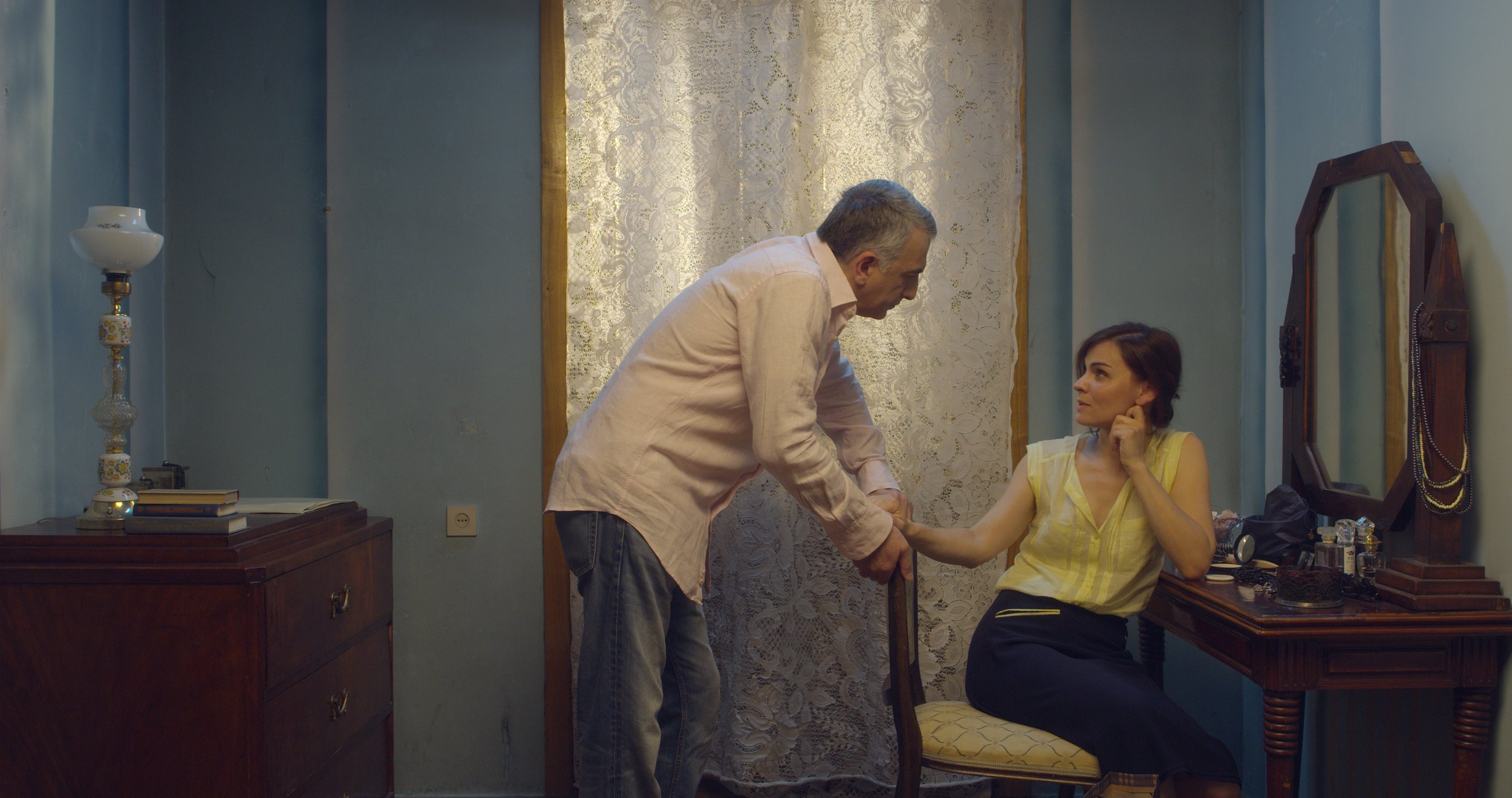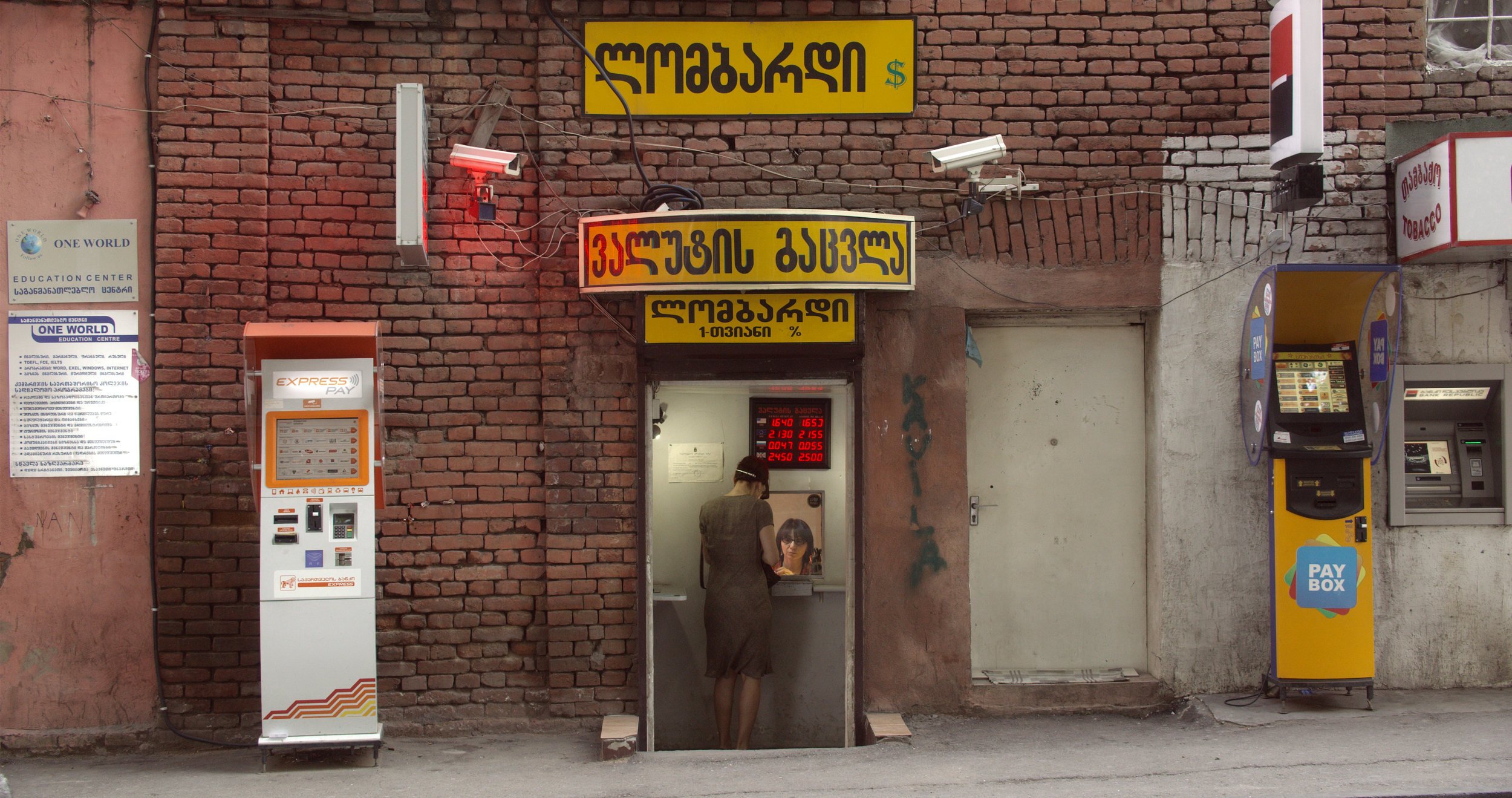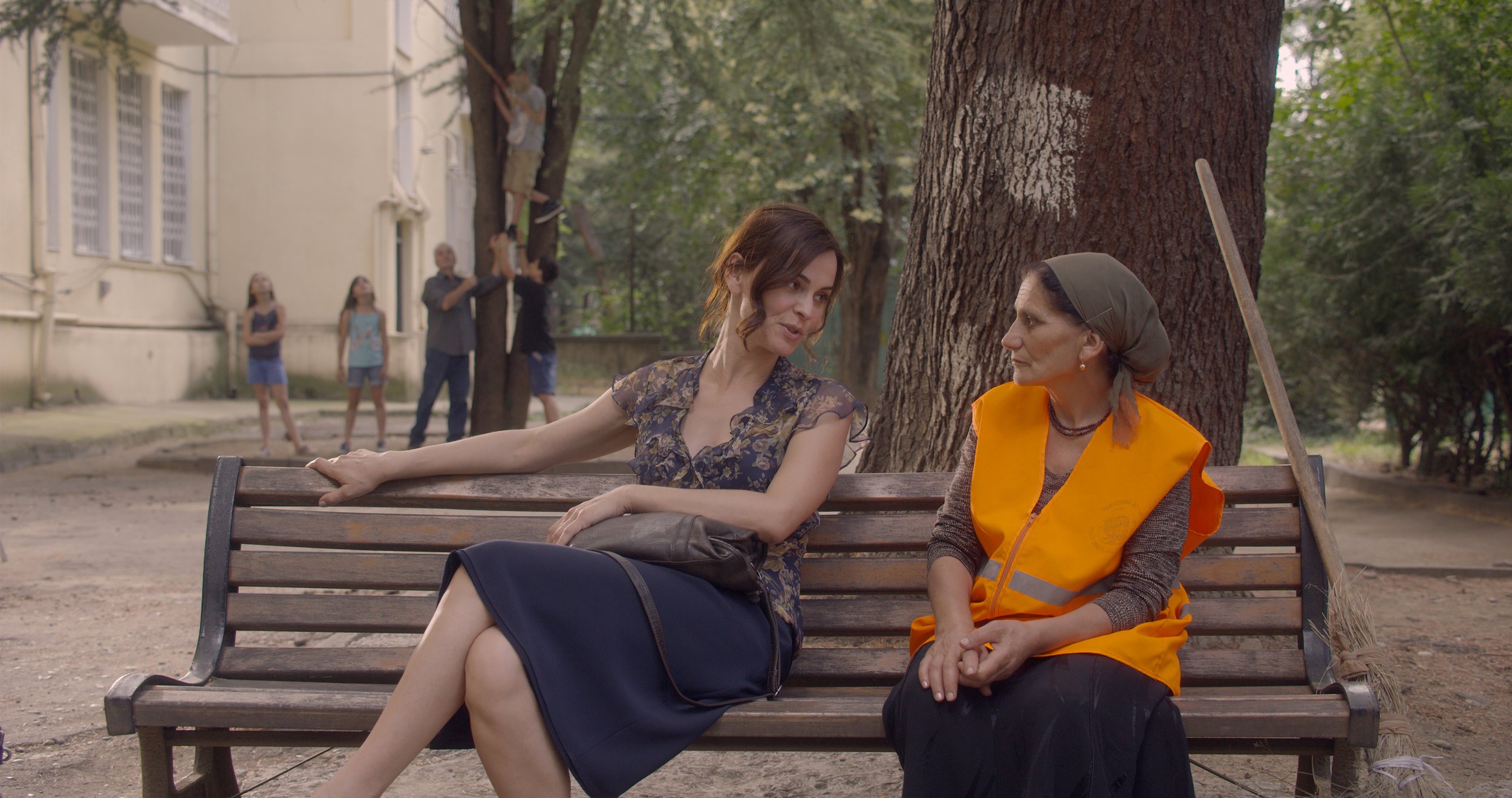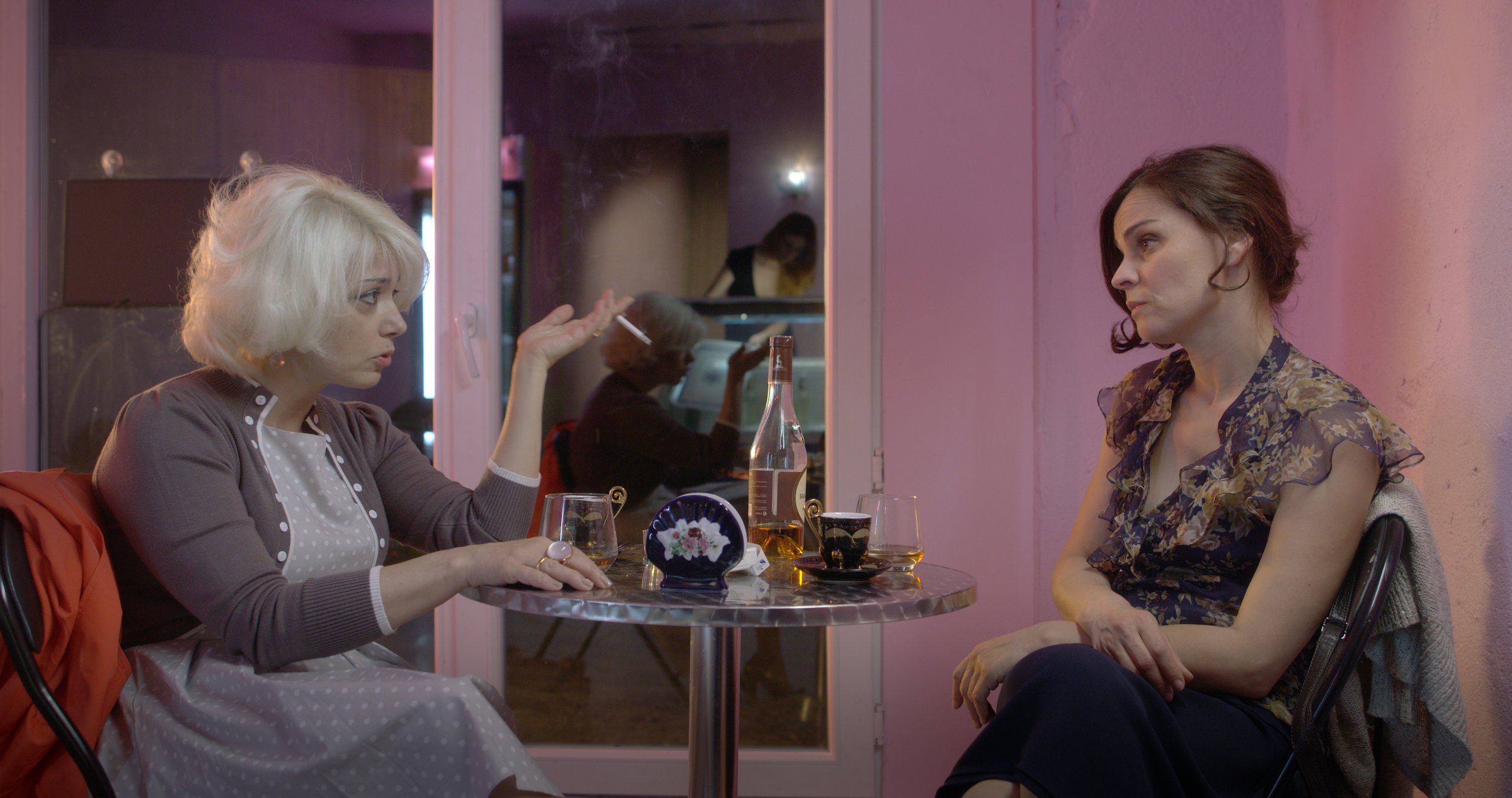Salomé Alexi
Line of Credit, Salomé Alexi (2014)
Salomé Alexi is a screenwriter, editor, producer and third-generation female film director from the Republic of Georgia. Her first short film Felicità, a portrait of guest-workers in Italy, premiered at the 2009 Venice Film Festival.
Alexi's first feature film also examines the intersection between individuals' financial dealings and their personal lives. Line of Credit is a parable of the Georgian debt crisis; the film premiered at Venice and went on to screen at East End UK and New Directors/New Films 2015 where it won the Golden Lynx for Best Film.
In an exclusive interview with Filmatique, Salomé Alexi discusses money, ignorance, the double-sidedness of the Georgian character and the importance of both humor and ambiguity in her work.
//
Line of Credit, Salomé Alexi (2014)
FILMATIQUE: Line of Credit serves as a portrait of the Georgian debt crisis, told through the eyes of one woman. Do you consider Nino's story a personal narrative, or a political one? What were the factors leading up to this crisis?
SALOME ALEXI: Nino’s story is of course personal, but at the same time very representative of her generation. We are surrounded by similar stories and cases.
Most people in modern Georgia, like Nino, are rather ignorant of financial matters, because having grown up in Soviet times they were never taught how to deal with money. Most of them are naive, sometimes kind, often greedy or impractical, but invariably unacquainted with reality. Their adaptation to the outside world seems rather difficult if not absolutely impossible. Though very charming, Nino is a quite typical representative of this generation.
But the problem is that each social class of Georgian (or any other post-Soviet) society is affected by the troubles caused by their ignorance. Usually we don’t know how to deal with money. When our relationship with money isn’t pragmatic, it then appears to us from a pretty attractive side and that is daring. At the same time it turns out, if we continue following this dangerous path, we may end up being excluded from the modern world.
The political aspect is also very important. The banks in Georgia have all the liberty and they act without any regulations, which does exist in Western countries.
FLMTQ: Have things improved?
SA: Not really. Recently it became even more dangerously easy to get credit. Something like $200 can quickly turn into $2,000 of debt in a very short time. It brings people in extreme despair and leads them to dead-end situations. Unfortunately the banks are rather shameless, and people’s mentalities don’t change that quickly.
Line of Credit, Salomé Alexi (2014)
FLMTQ: One of the strengths of Nino, the protagonist, is her ambiguity. We watch her take out loan after loan, then walk into the salon. Do you believe that materialism is a reality of modern life, for both men and women? How do individuals relate to their own materialism in the context of post-Soviet society in particular?
SA: I think that any person in movies or in real life who deserves our interest is more or less shaped by ambiguity. Nino’s ambiguity is a very important part of her character. She is and can be kind and selfish, generous and immoral, ambitious and simple at the same time.
FLMTQ: Nino is told ad naseum by her neighbors and friends how beautiful she is despite her age. How does the concept of 'keeping up appearances' fit into your schematic understanding of her story?
SA: Keeping up appearances is also a subject of the film. Everything that happens to Nino is because of that idea of appearance. How she is seen by others is more important to her than reality. Her loans are mostly not for matters of survival, but for superfluous, unnecessary things, which to her are vital.
She has to put her daughter in a private school. She has to wear the most beautiful and expensive dress, or buy a new handbag. She has to be able to help relatives. That is the reason why she is stepping into a disaster.
This was my purpose: to show the problems of this mentality rather than the banking system or real poverty. It does exist everywhere. Nino’s mentality is typical in Post-Soviet countries.
Nino doesn’t belong to a low societal class, but she will lose everything because of her attitude.
Line of Credit, Salomé Alexi (2014)




